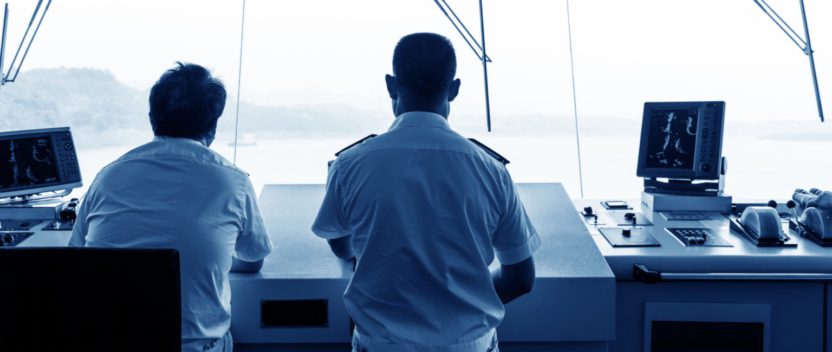Twilight of the Gods? The future of German shipping
In the final part of our review of the German shipping industry, we ask the big question; does the maritime cluster have a future and if so, what will it look like?
Some elements of Germany’s shipping sector are damaged, others permanently broken and given the effects of the downturn on owners it seems logical to wonder if the community in Hamburg and elsewhere are thinking much about the future.
It turns out they are, at least according to PwC Partner Claus Brandt, whose firm surveyed the landscape just prior to the SMM exhibition. As the event approaches, Brandt talks up the future for German shipping as an industry of new ideas and a changed outlook.
The PwC survey suggested that Germany’s owners were open to more outsourcing of non core tasks and that they were looking increasingly beyond the country’s borders for services as well as investment opportunities.
Does Brandt think the industry will be able to ride out the remainder of the rough weather to the extent that we will still be talking about a healthy German shipping sector in another 10 or 20 years time? His answer is considered, but not entirely evasive.
“I think we have to remember that we are not living alone in this world. In Asia we see a situation where money is being created that pays to build vessels, fill capacity, look for customers and utilise capabilities – perhaps with the support of the local or national government.”
That has created a permanent shift in the location where assets are owned and a complete break with the past. Even 10 years ago, cargoes were global but the assets were owned in Europe, a mismatch that gave the region’s owners a chance to control the industry.
With those days gone, the countries which focussed on national fleets, flag, financing and specific ship types will struggle, unless they learn to adapt. Owners in Asia recognise the opportunity and have long since questioned, why should they charter vessels from Europe, when they can build their own.
“Chinese investors will increase their share of the whole fleet and the share for the fleet from a German perspective will decrease. For container vessels where, at the highest point ships under management from Germany was 34%, in future that will be more like 25% and it could fall further.”
In shipping at least, the obvious parallel is Norway, where smaller, sector focussed, family-owned companies merged or sold up often to Asian buyers through the 1980s and 1990s, in order to concentrate on offshore investments. Is Germany at risk of becoming the ‘new Norway’?
“It could be the same development. In the future we could see much more globalisation in the sense of German investors placing money abroad. What is the best opportunity, what will give the best return? With technology comes transparency and it’s easier to see opportunities, whether they are in Africa where German investors never focussed on in the past, or in Asia where they have already done so.”
Greater diversity in financing means not only thinking about local markets but global ones too and Brandt agrees that traditionally Germany has seen itself as an internal market of choice, with investments in a national industry and the national interest. “Germans tend to think ‘I know these people, they are Germans, they are reliable, I trust them’. But the values of people change dramatically and in terms of what the younger generation in business is thinking about, they don’t necessarily apply the lessons of the last 100 years. They are very flexible in this respect and that is a guideline for the future.”
Norway’s success in the offshore market is driven by the resources on its doorstep but its designers, suppliers and technology have become a global force and byword for quality. Germany retains a vast array of knowledge in shipping and Brandt says the need is to bring together that industry expertise with new approaches to financing, diversification and service segmentation. As the PwC survey makes clear, it is unnecessary to have all services performed by one company from one country.
“We have to think in a more modern way in this respect, how can we segment the services, can we use other capacities at different price points and put all these things together and control them? You have a lot of interfaces to consider but when you find a way to bring them all together you have success, as we have seen in manufacturing and other industries,” he says.
Blue sky thinking is required and perhaps will happen during SMM week. Brandt agrees that German owners will probably be more interested in minding the shop than partying extravagantly.
German shipping is not the right space for large scale investments at present, but he still expects some deals to happen as investors with new partners seek a position in bigger, more fuel efficient vessels, but these will probably be the exception, rather than the rule.
“I think you could call the strategy ‘hiding to survive’. There are some owners who have come through the crisis in good shape and are looking ahead, for new opportunities, but that’s only a small part of the total. For the majority, it’s a steady as you go strategy for the next couple of years, try to keep the ship sailing, maybe turn a profit, but not by doing anything spectacularly different.”
Ends


